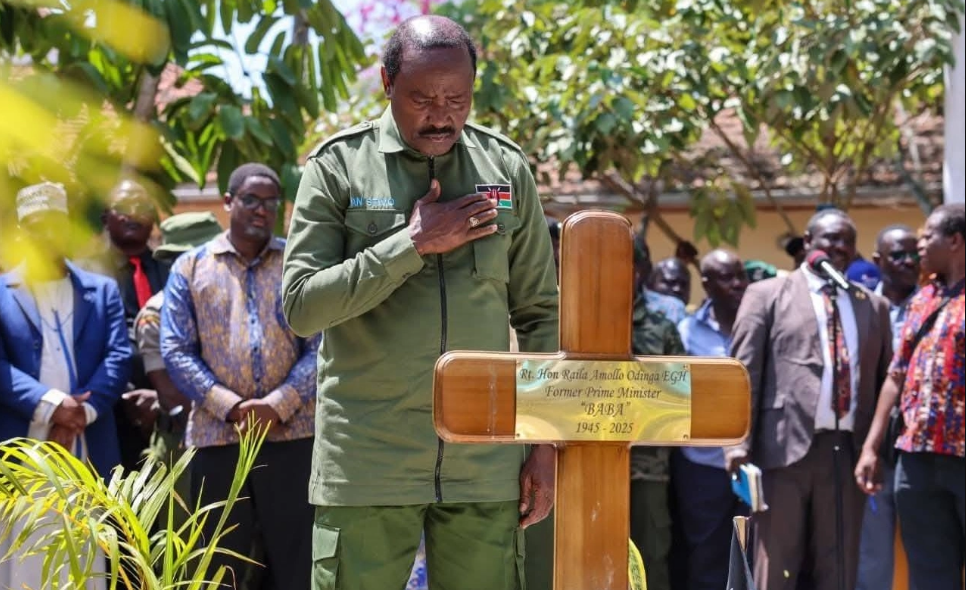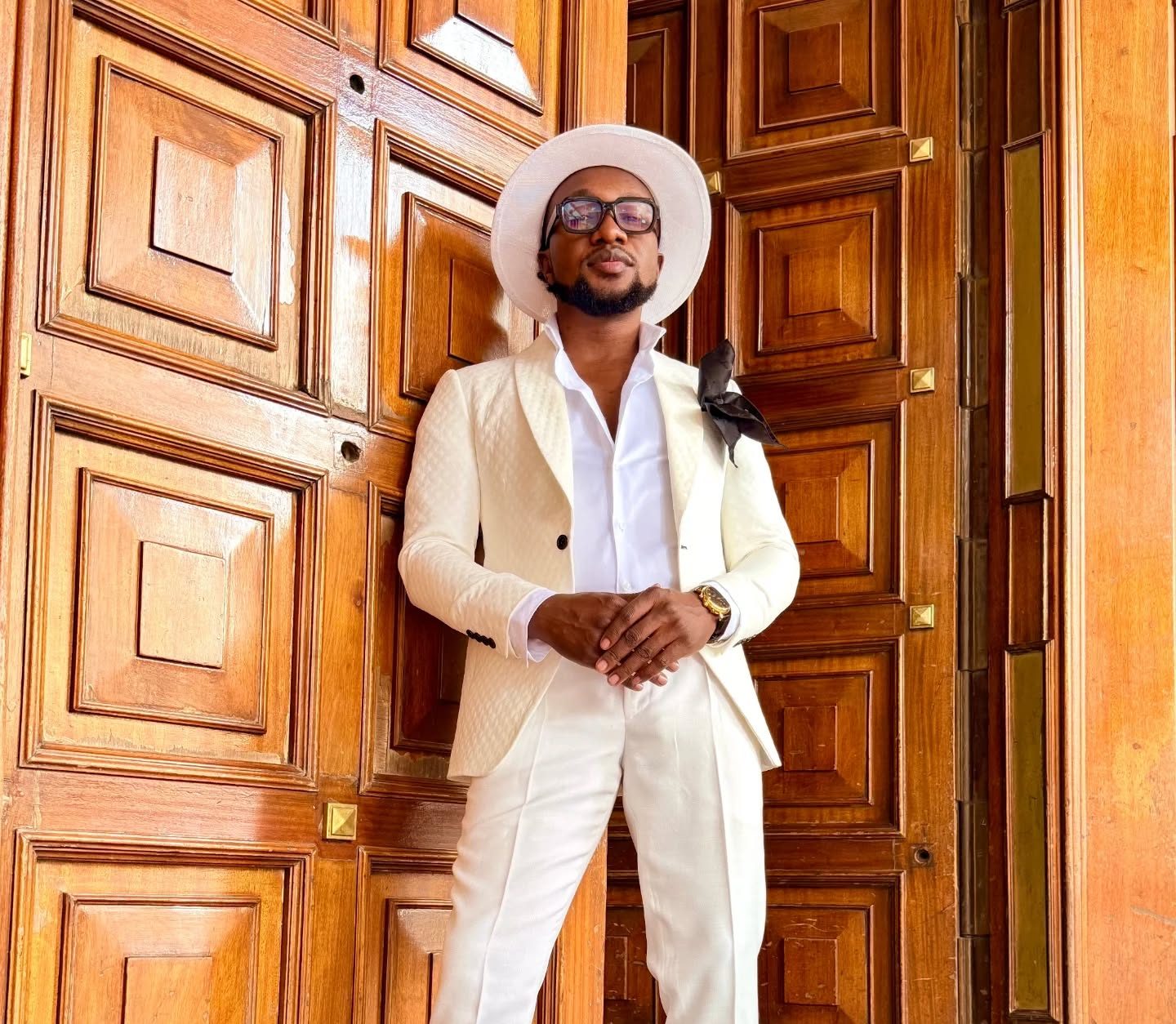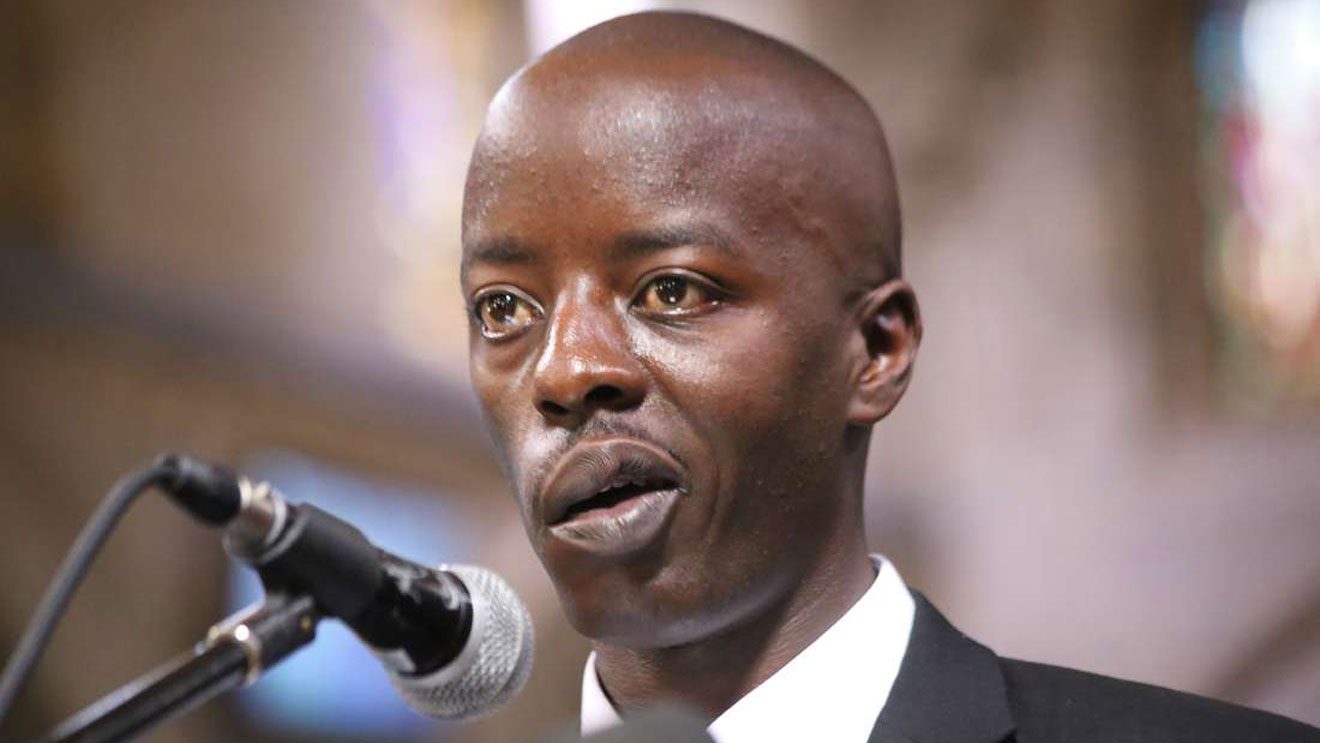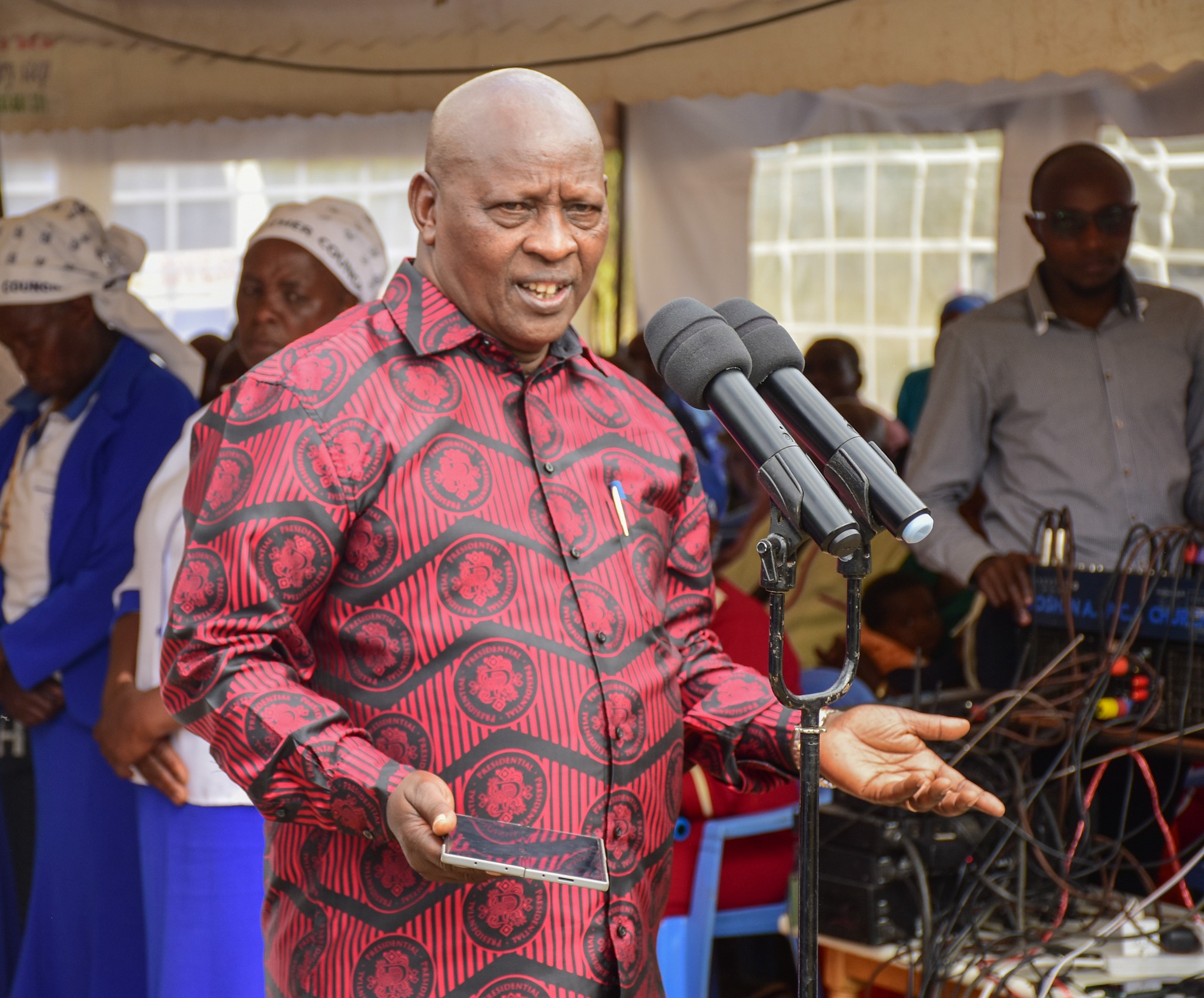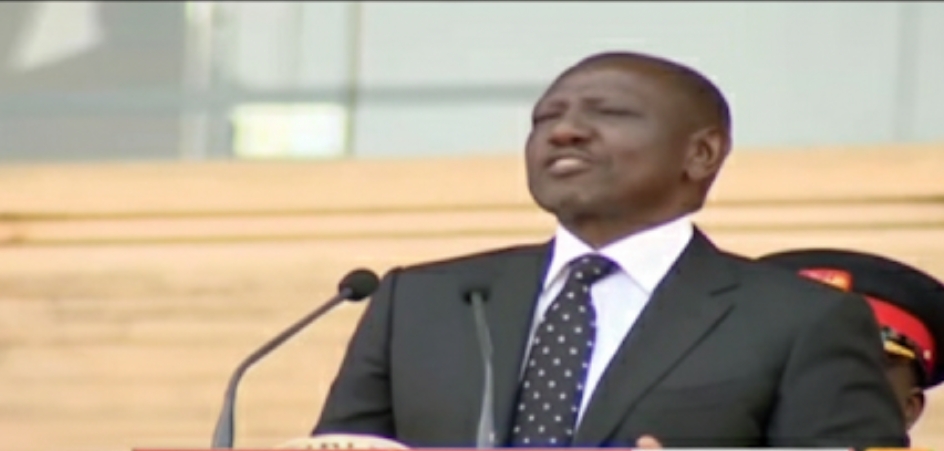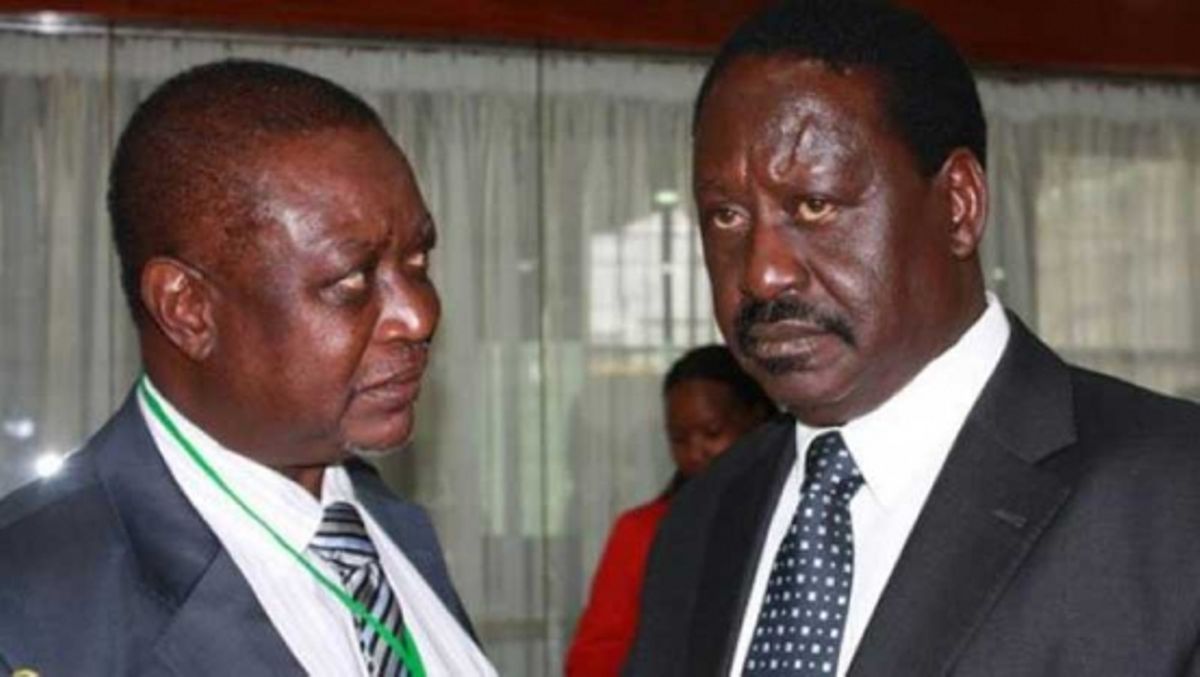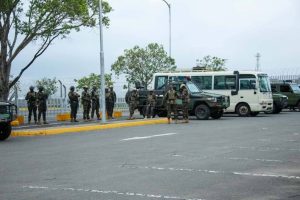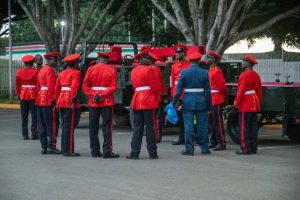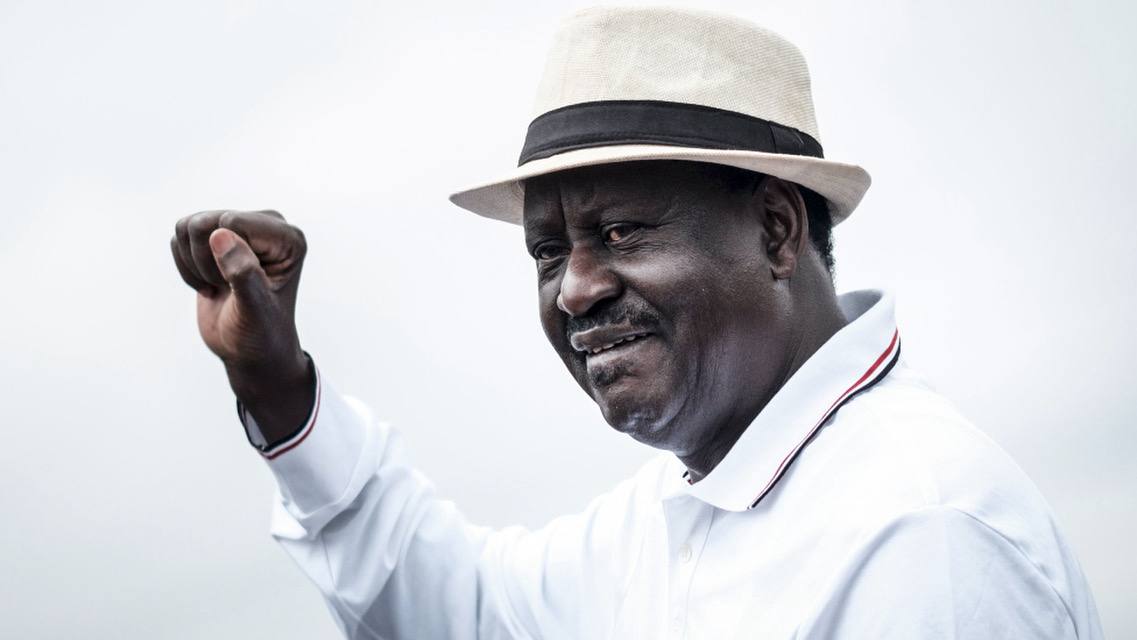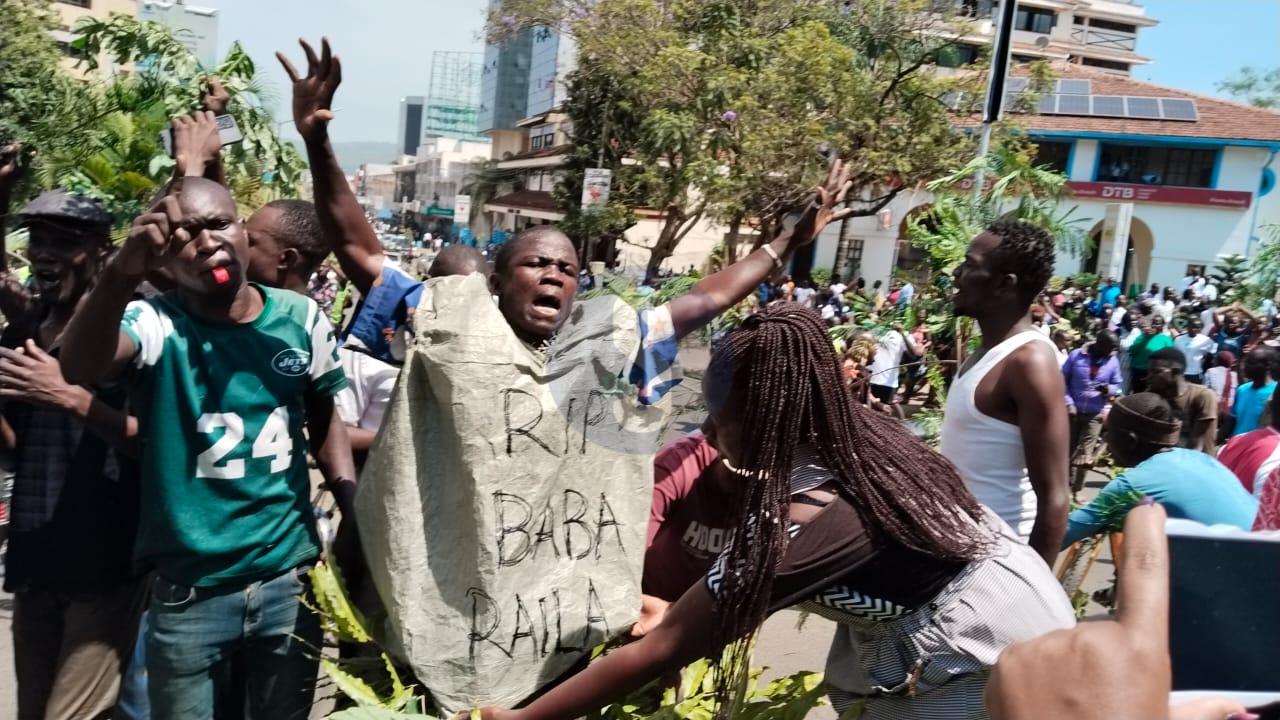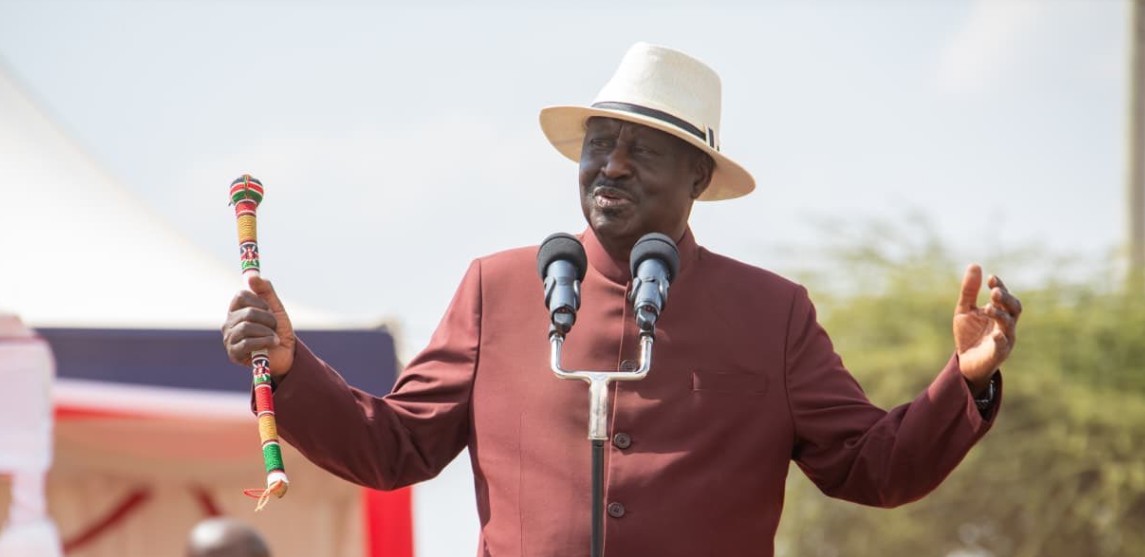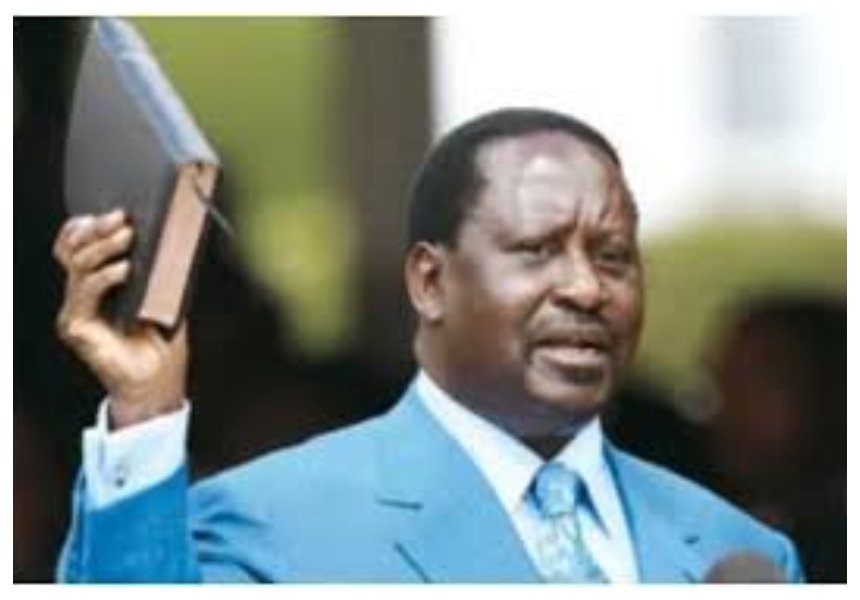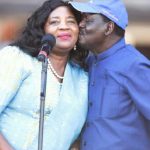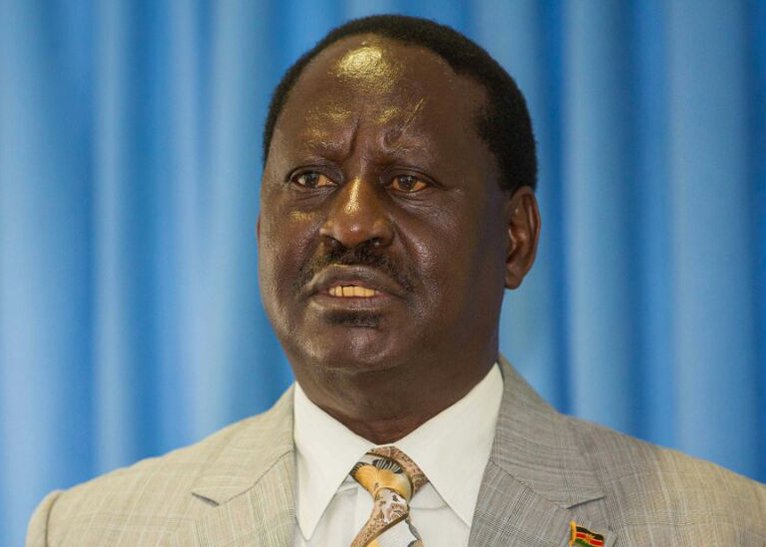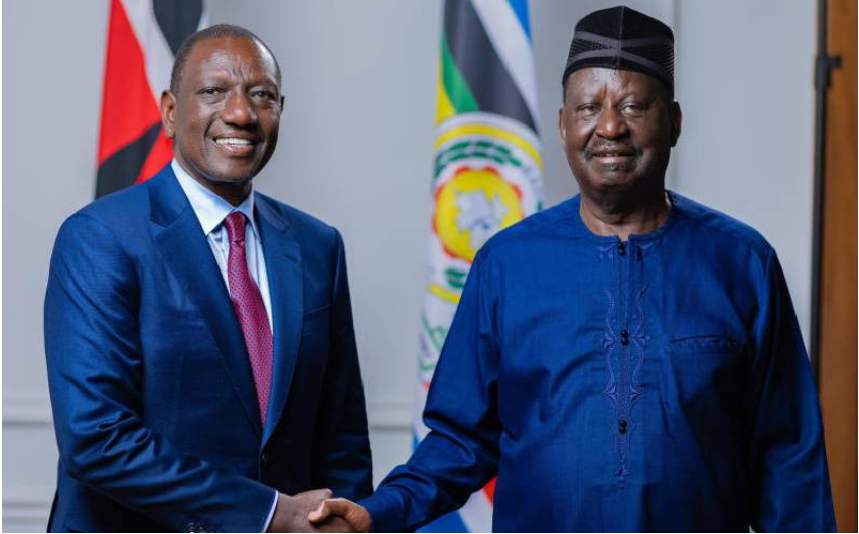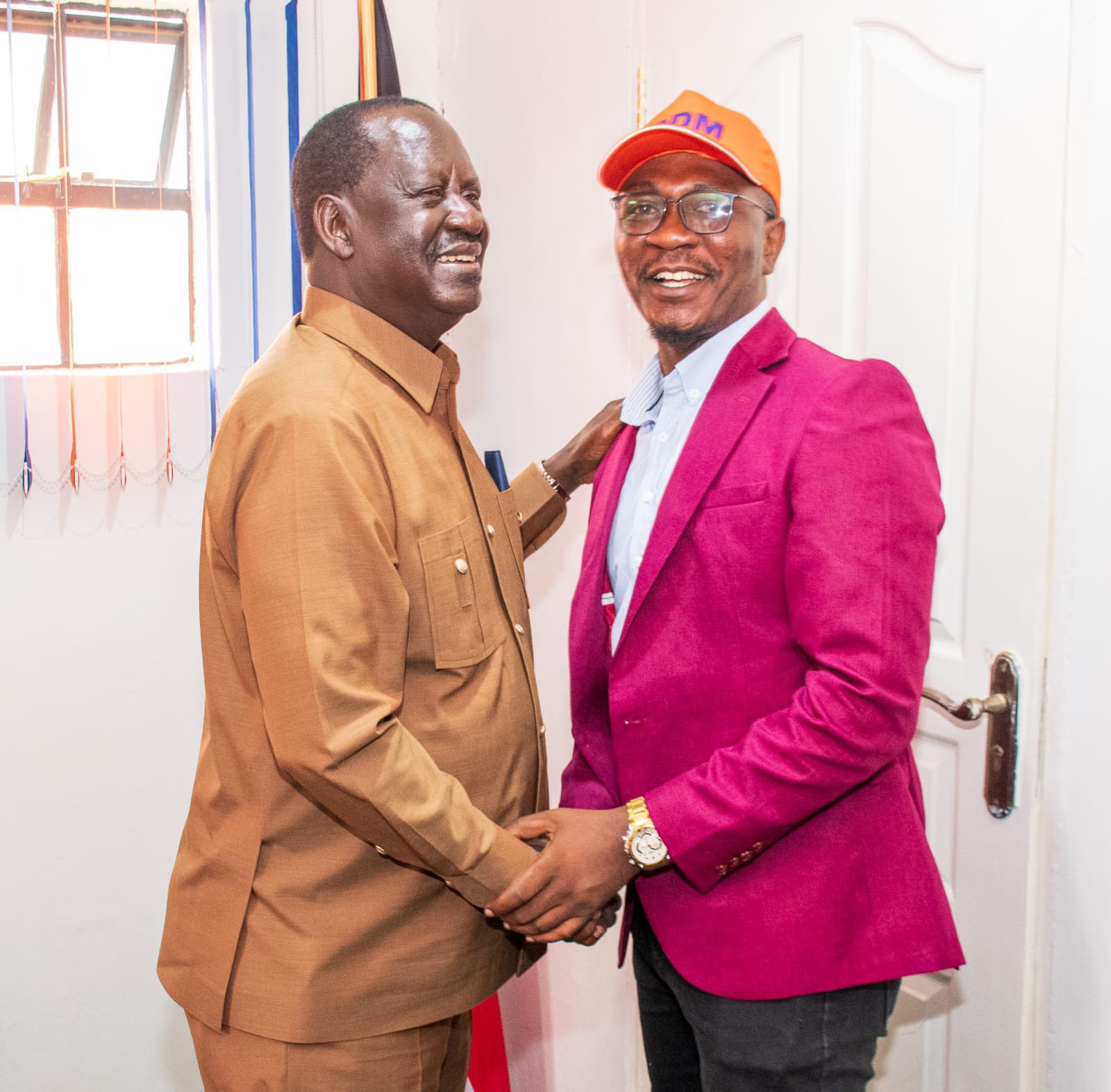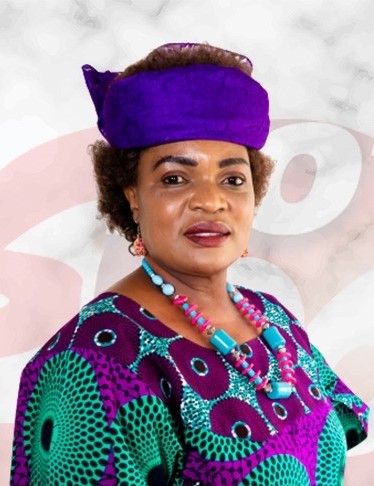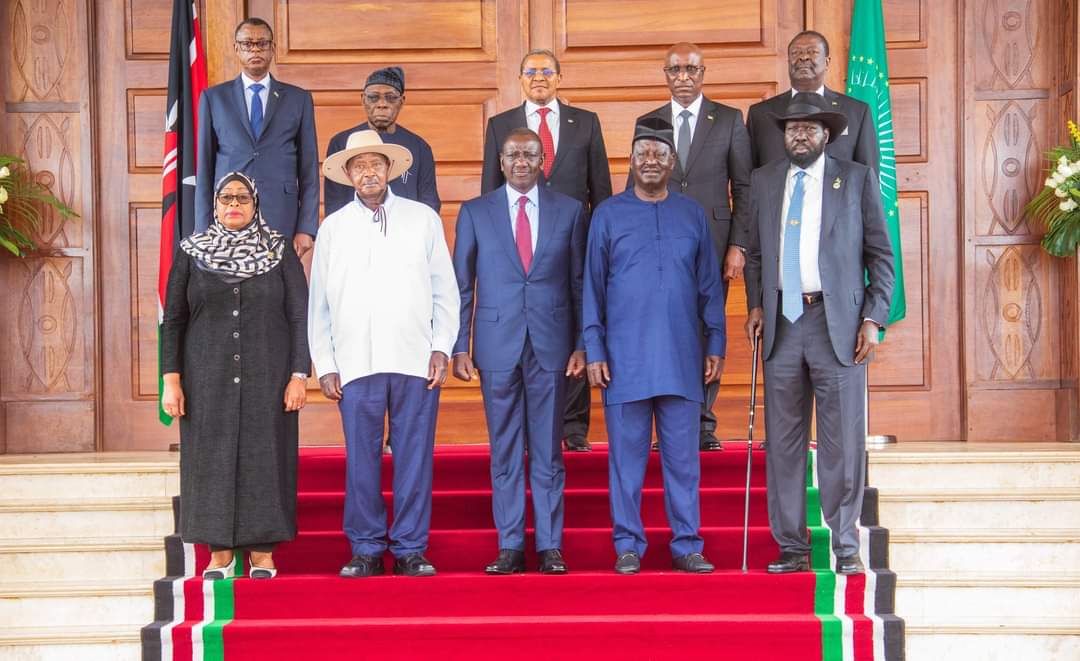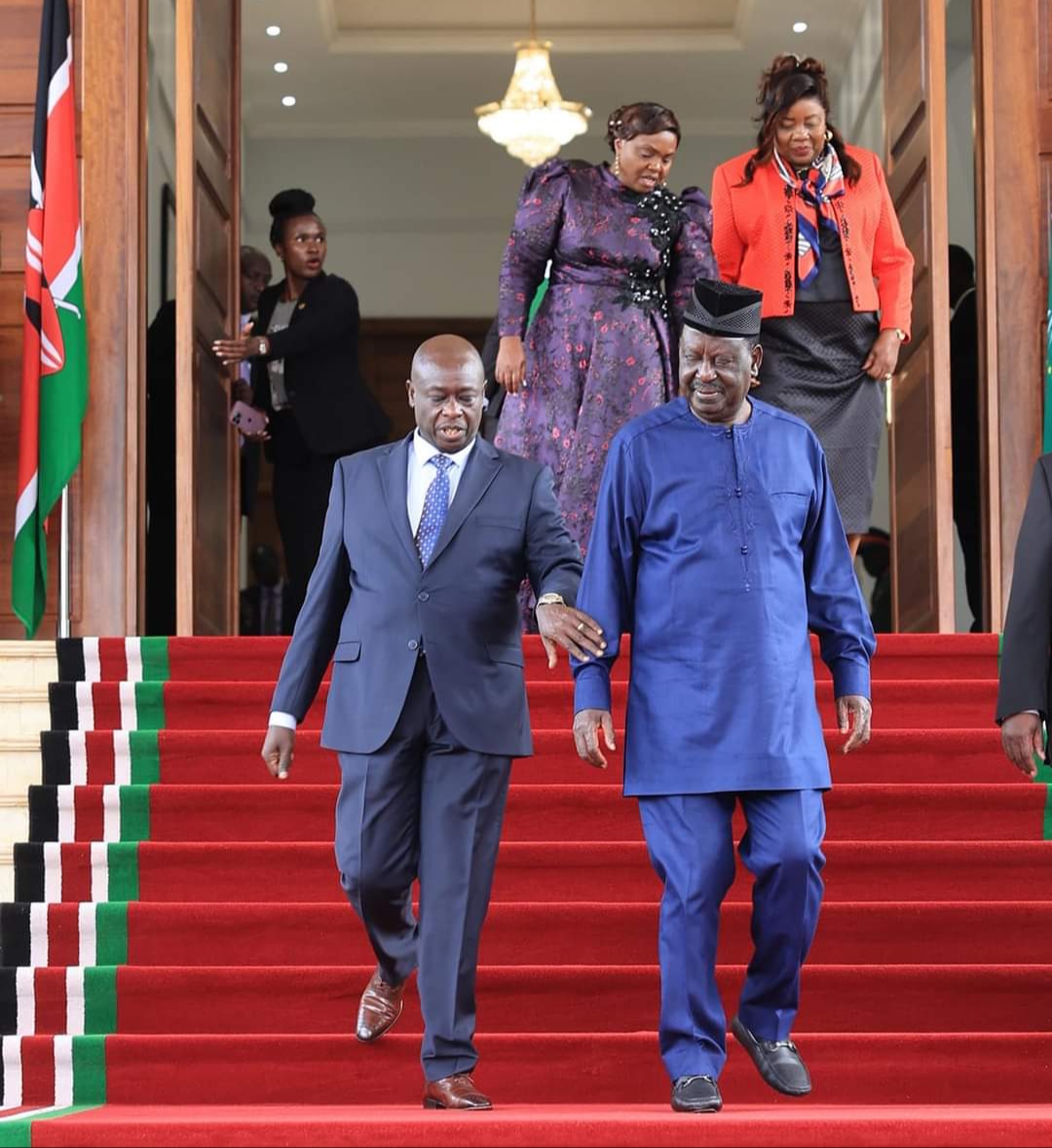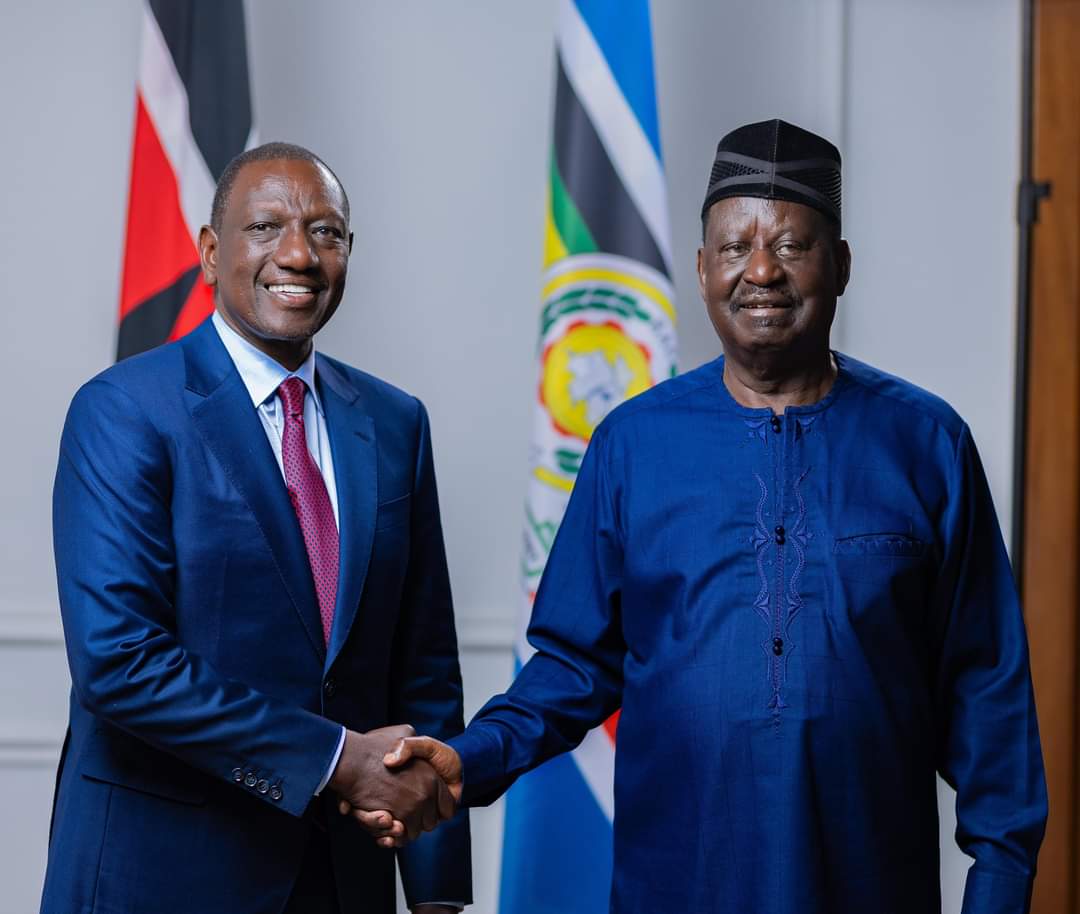This is president Ruto’s speech during the State Funeral of the Right Honorable Raila Amolo Odinga:
To Mama Ida, and your children – Rosemary, Raila Junior, and Winnie – as well as the larger Odinga family, led by our elder brother, Senator Dr Oburu Oginga, please accept the nation’s most heartfelt condolences on this immense loss.
Kenya stands with you in this moment of sorrow. We share in your inexpressible grief, but we also share in your pride for your husband, your father, your brother, and your kin who belonged not only to you, but also to all of us. Thank you for sharing him so generously with us, our families and the nation.
Amolo may no longer walk among us, but his spirit lives within every Kenyan and every African. Such was the depth of his
influence and impact that even in his absence, his presence endures.
Fellow Citizens, we gather here today not just to mourn the passing of Baba, but to celebrate his purpose, his vision, and his
ideals. He walked among us as a man, but he also charged among us as a movement, a movement for change, a movement
for justice, a movement for inclusivity, and a movement for a greater and better Kenya.
Allow me, fellow citizens, at this solemn moment, to also speak as an ordinary Kenyan, a father, a brother, and a fellow traveller in the long journey of our nation’s story.
I have come a long way with Baba. When I stood by him, with the other members of Pentagon, at a defining moment in his and
our nation’s history, I neither knew that one day we would find ourselves on opposite sides nor could I have imagined that, years later, he would stand beside me, this time to steady the nation and help anchor my leadership, culminating in the birth of a broad-based government.
I am truly and eternally grateful that our paths crossed and that we shared this journey together. We have been both
collaborators and competitors, friends and rivals, but always patriotic Kenyans, united by a dream greater than ourselves, a dream bigger than any partisan divide, a dream of our united motherland, Kenya.
As I have reflected on Raila’s legacy following his passing, I have entertained no doubt in my mind that history will judge him fairly and kindly because whenever the nation needed him to rise
above self, he always did unreservedly. Whenever Kenya needed a reason, he became the voice of reason courageously. And whenever the country needed a hand of reconciliation, he offered it without hesitation.
Perhaps one of the greatest lessons he taught us was this: In the noble task of statecraft and nation-building, there is room for all of us, competitors and collaborators, rivals and allies,
bound together by one higher purpose – the greater good of our Republic.
Fellow citizens, those who worked closely with the Hon Raila Amolo Odinga know that he was irrevocably stubborn in his
vision for a just, prosperous, and united Kenya, a nation where opportunity belongs to all and justice favours none.
In Tinga, Kenya found a reformer, a moral compass, and a reconciler. He proved that progress demands both courage and
patience; that we must be stubborn on the vision, but agile on the details, adjusting our means, our plans, and our strategies,
but never compromising our mission.
The gentleman we are bidding farewell today gave more to this country than most ever will. He endured years of imprisonment, exile, and political struggle not for the privilege of power, but for
the principle of service.
He bore the scars of his struggles with dignity and calm poise
and turned pain and suffering into purpose.
Jakom was also at home in the humblest of homes, and at ease
on the grandest of global stages. His heart belonged to the people; he shared in their pain, rejoiced in their victories, and
never lost faith in the people’s goodness.
Fellow mourners, one of Hon Odinga’s favourite songs was Jamaica Farewell by Harry Belafonte, a melody of longing and
gentle sorrow. He often broke into a dance, and with a big smile sang:
Round the bay of Mexico,
where the sun shines daily on the mountain top
I took a trip on a sailing ship,
and when I reached Jamaica,
I made a stop.
But I am sad to say,
I’m on my way,
Won’t be back for many a day.
My heart is down,
My head is turning around,
I had to leave a little girl in Kingston town.
Today, those words ring with profound meaning, significance, and impact. Our elder statesman, Hon Odinga, is sailing on a ship, not to Jamaica, but to home beyond.
He will not be back with us for many a day. He leaves behind many little girls and boys, not in Kingston town,
but here in Nairobi, in Kisumu, in Mandera, in Mombasa, in Kakamega and in every village and valley across our land.
Baba has finished his race; he has kept the faith; he has served his people and humanity. It is our solemn prayer to the Almighty God that the soil of the
land which Hon Odinga so tirelessly served shall embrace him with grace; that the nation he sacrificed for shall eternally
cherish his memory; and that the people for whom he fought shall carry his dream forward.
Ladies and gentlemen, fellow citizens, when a man of the stature
of Baba, a towering patriot, a relentless reformer, a visionary statesman, and a selfless servant of the people departs from
among us, when a mighty Bongu tree falls among us, we are left in awe of a life so immense in purpose and impact.
And in that quiet moment of both boundless gratitude and unfathomable grief, we are rightfully bound to ask: From where shall another like him rise?
May the Almighty God comfort his family. And may the soul of the Right Honourable Raila Amolo Odinga rest in eternal peace.

